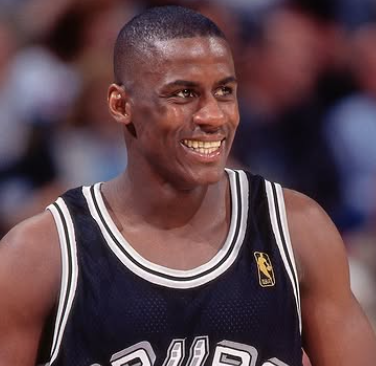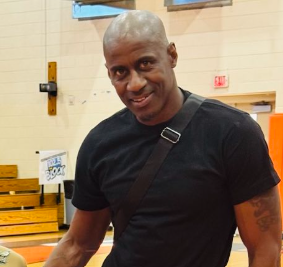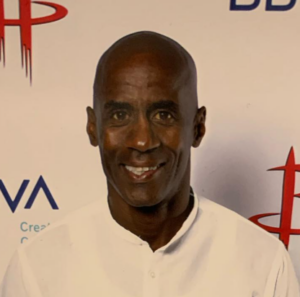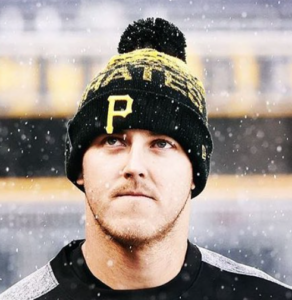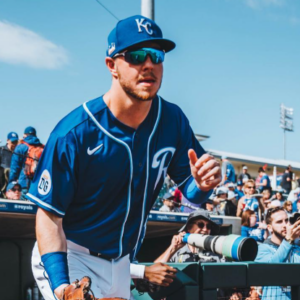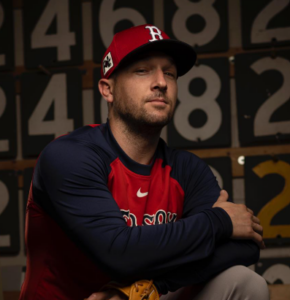Vernon Maxwell’s story is one of resilience, passion, and defiance. From his early days as a second-round pick to his role as a two-time NBA champion, Maxwell’s journey was anything but ordinary
His rivalry with Utah and the Jazz stands as a testament to his competitive spirit and his refusal to back down in the face of adversity.
His story serves as a reminder of the challenges players face both on and off the court, and the lasting impact those challenges can have.
Also Read: Meet Ryan Shazier’s Inspirational Parents, Vernon and Shawn
Table of Contents
Vernon Maxwell: Defensive Dynamo with a Fiery Edge
Over Vernon Maxwell’s 13-year NBA career, he solidified himself as one of the league’s most fearless competitors.
Known for his tenacious defense, clutch shooting, and fiery personality, Maxwell played a pivotal role in the Houston Rockets’ back-to-back NBA titles in 1994 and 1995.
His contributions to the game have etched his name in Rockets lore, but his NBA journey wasn’t without controversy and conflict.
A significant part of his story involves his tumultuous relationship with Utah and the Jazz, a rivalry that remains as fiery today as it was during his playing days.
Hope everyone had a good MLK day yesterday. I wonder if the state of Utah celebrates MLK or if they even know who he is.
— Vernon Maxwell (@VernonMaxwell11) January 21, 2025
The Making of Vernon Maxwell: A Fearless Competitor
Vernon Maxwell entered the NBA in 1988 as a second-round pick for the San Antonio Spurs. Standing at 6’4″, Maxwell was a versatile guard who thrived on both ends of the floor.
His defensive intensity and ability to knock down clutch shots earned him the nickname “Mad Max.” After a brief stint with the Spurs, Maxwell found his true home with the Houston Rockets.
In Houston, Maxwell emerged as a cornerstone of the team’s success. Alongside Hakeem Olajuwon, Maxwell provided the grit and toughness that the Rockets needed to secure two consecutive championships.
While Olajuwon was the star, Maxwell’s tenacity and willingness to take on the toughest defensive assignments made him an invaluable asset.
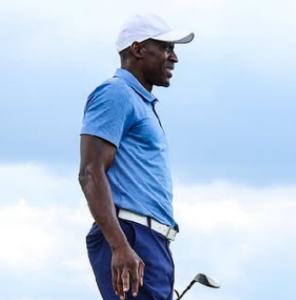
Vernon Maxwell: The Utah Jazz Rivalry
Racial Abuse and On-Court Battles
Despite his success on the court, Maxwell’s career was marred by his heated rivalry with the Utah Jazz and their fan base.
According to Maxwell, his visits to Utah during his career were fraught with racial abuse and threats from Jazz fans. The animosity he felt toward the state wasn’t just about basketball—it was personal.
Maxwell’s comments about Utah have continued long after his playing days. He has often taken to social media to poke fun at the state, highlighting the lasting impact of his experiences there.
Most recently, on Martin Luther King Jr. Day, Maxwell posted on X (formerly Twitter):
“Hope everyone had a good MLK day yesterday. I wonder if the state of Utah celebrates MLK or if they even know who he is.”
This post drew attention not only for its humor but also for the deeper issues it touched on regarding Maxwell’s ongoing disdain for Utah and its fans.
Turning Hostility into Motivation
Maxwell didn’t allow the hostile environment in Utah to intimidate him; instead, he used it as fuel for his competitive fire. Every game against the Jazz became an opportunity to prove himself and silence his critics.
“I took everything they said to heart and used it as motivation,” Maxwell shared in an interview. “Every time I stepped on that court in Utah, I wanted to dominate—not just to win, but to make them regret everything they said to me.”
Maxwell’s most notable battles with the Jazz came during the postseason, where tensions were at their highest. In the 1995 Western Conference Semifinals, the Rockets defeated the Jazz in a hard-fought five-game series.
This victory was particularly sweet for Maxwell, as it came at the expense of Utah legends Karl Malone and John Stockton.
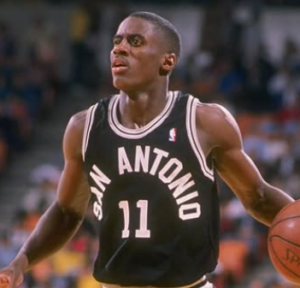
Vernon Maxwell’s Legacy
A Champion with Unfinished Business
Today, Vernon Maxwell is remembered as one of the most colorful and controversial figures in NBA history.
His contributions to the Rockets’ championship teams cannot be overstated, and his fiery personality continues to captivate fans. However, his legacy is also defined by his willingness to speak out about the darker side of his career.
Maxwell’s ongoing feud with Utah may never be resolved, but it has become a part of his identity. For better or worse, his experiences with the Jazz and their fans have shaped the narrative of his career.
The 1990s NBA: A Different Era of Competition
- Maxwell’s rivalry with the Utah Jazz is emblematic of the NBA’s gritty and confrontational nature during the 1990s.
- Unlike today’s game, which emphasizes sportsmanship and player camaraderie, the NBA of Maxwell’s era thrived on animosity and rivalries.
- Players weren’t just competing for championships; they were fighting to assert their dominance over one another.
- The Rockets’ 1994 and 1995 championship runs epitomized this era. The team’s path to glory was filled with intense matchups against fierce competitors like the Jazz, the Phoenix Suns, and the New York Knicks.
- Maxwell’s role as a defensive stopper and emotional leader was critical to the Rockets’ success, and his clashes with opponents often set the tone for the team’s performance.
- For Maxwell, the animosity he felt from Utah’s fan base was not something he could leave behind after his career ended.
- As a player, he focused on winning, but he vowed to shed light on his experiences once he had a platform to do so.
- “They did a lot to me back when I was playing, so I felt like whenever I got a platform, I was able to talk about something,” Maxwell explained to Chron. “I was going to make sure I put the damn Utah Jazz in this s–t.”
- Maxwell’s willingness to speak out about his experiences has opened the door for conversations about the treatment of athletes by fans and the racial undertones that sometimes accompany it.
- His story is a reminder that the NBA of the 1990s was not just about basketball—it was a battle of wills, personalities, and, at times, social dynamics.
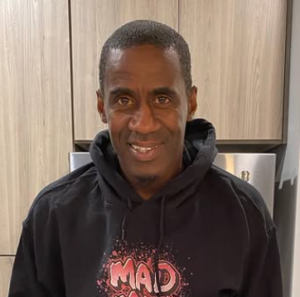
Also Read: Rori Harmon (Basketball): Meet Her Parents, Bio, Wiki, Age, Career and More
Also Read: Who Is Tarin Driskel (Jeff Driskel Wife)? Relationship Timeline Explored
